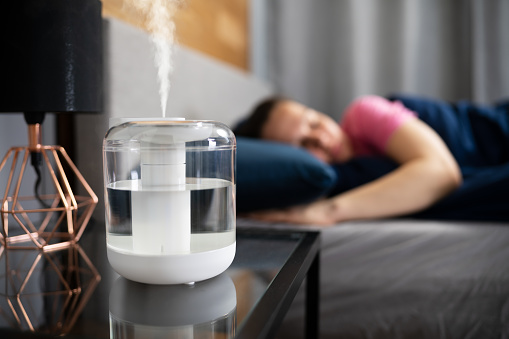Your bedroom can be the most comfortable place to rest in your home, but it can also be the most uncomfortable place if you don’t use the right room humidifier. But what’s the difference between a humidifier and a vaporizer? And when should you use one in your bedroom? Find out everything you need to know about bedroom humidifiers, including the best options on the market, by reading this informative guide on what they are and when you should use them at home.
Introduction to Bedroom Humidifiers
A bedroom humidifier is a smaller humidifier designed for bedrooms. It’s also great to use during cold winter months to help prevent your nose from getting stuffy at night. While there are many types of humidifiers, most people think of big machines that can be used in large rooms or even whole houses. However, you can buy small versions that will fit on your dresser or desk and just add moisture to one room.
3 Reasons Why You Need a Bedroom Humidifier
If you’re like most people, you spend about a third of your life in bed. With all that time spent shut-eyeing, you want to do everything you can to ensure an amazing night’s sleep. While mattresses and pillows are certainly important aspects of getting a quality rest, so is humidity control. Here are three reasons why adding one of our quiet whole-house or personal room humidifiers could be just what your space needs!
1) Increased comfort: You spend 1/3 of your life in bed, which means how comfortable you feel has a huge impact on how well you sleep. A humidifier will keep you cool during those hot summer months, and warm during those cold winter nights. Don’t settle for a less than optimal experience while you get your ZZZs!
2) Better breathing: A good night’s sleep depends on more than just comfort; it also requires good breathing conditions. Humidifiers add moisture to dry air, which helps loosen congestion and allows for easier breathing. Buy Now https://www.amazon.com/Cool-Mist-Humidifier-Bedroom-Ultrasonic/dp/B077Z2QCS5/.
3) Less dry skin: Our bodies naturally produce moisture as we breathe at night, but if you live in a dry climate or have particularly dry skin, a humidifier can help boost your body’s natural moisturizing abilities by increasing humidity levels.
How to Use Humidifiers Effectively
Humidifiers are great for improving indoor air quality, which can help you sleep better. The problem is that most of us don’t know how to best implement them into our everyday lives. In fact, one study showed that most Americans actually over-humidify their homes, which could lead to things like mold growth (and no one wants that).
Here’s how to figure out whether or not you need a humidifier in your bedroom—and if so, how to use yours effectively
- Find out if you have a dry home: You may be surprised by just how dry your home really is. Use an inexpensive hygrometer to measure humidity levels in several rooms of your house throughout the day; ideally, relative humidity should be between 30% and 50%. If it’s lower than that, consider using a humidifier. Also check your heating system—it might be leaking heat outside instead of keeping warm inside air inside!
- Figure out what type of humidifier is right for you: There are three main types of humidifiers on the market today: ultrasonic cool mist, evaporative cool mist, and steam vaporizers. Each has its own advantages and disadvantages, so it’s important to do some research before making a purchase.
- Check your water supply regularly: One common mistake people make with humidifiers is forgetting to change their water supply regularly—or even worse, running out of water altogether!
Also Read: 5 Best Budget Phones to Buy This Year
TheITbase
Related posts
Hot Topics
Metaverse Platforms for Virtual Workspaces
Ever felt like your office is stuck in the Stone Age? Tired of endless Zoom calls that feel about as…
IoT Protocols: The Language of Smart Devices
Ever wonder how your smart fridge talks to your phone? Or how does your fitness tracker know to buzz when…



